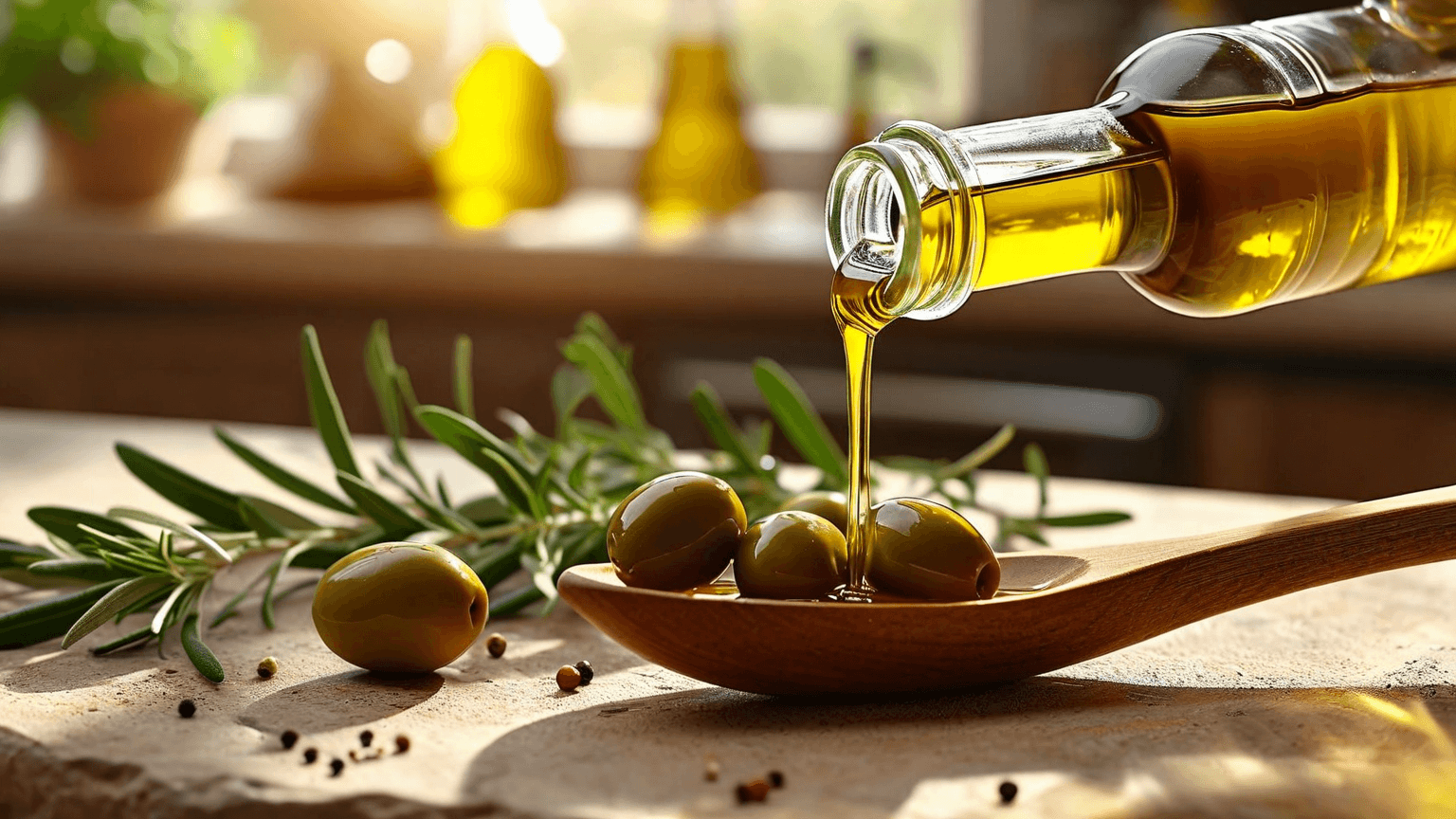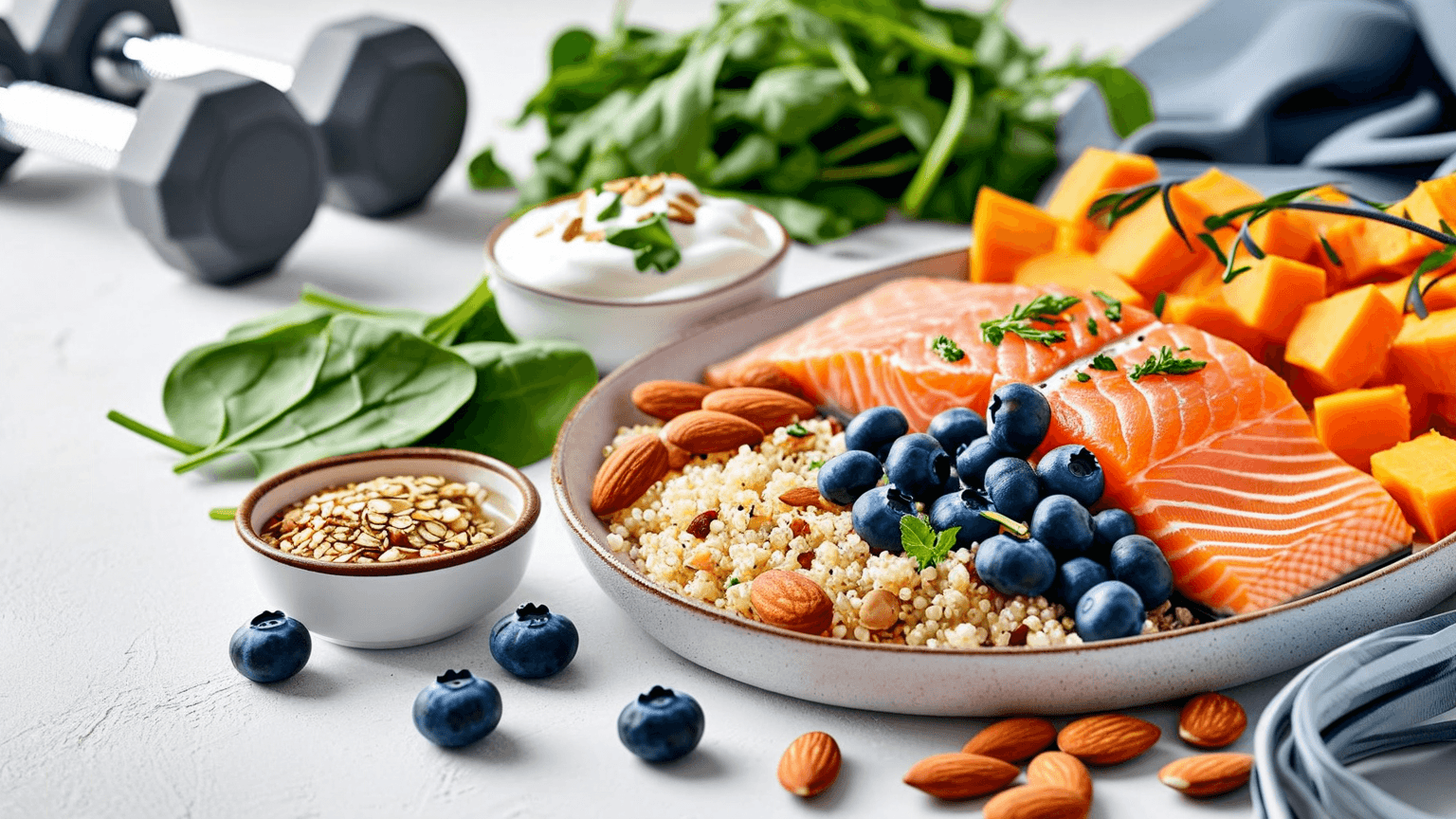What if the golden liquid sitting in your kitchen cabinet could rewire your body's most critical physiological functions in just 30 days? Virgin olive oil isn't just another cooking ingredient – it's a top power packed superfood that activates cellular pathways most people never knew existed. While millions pour it over salads without a second thought, cutting-edge research reveals this Mediterranean staple triggers profound changes in your cardiovascular system, brain chemistry, and inflammatory response that can transform your health from the inside out.
The problem isn't that people don't use olive oil – it's that 90% are missing the specific physiological functions that make virgin olive oil a true health powerhouse. Most consumers grab any bottle labeled "olive oil" without understanding the massive differences in bioactive compounds, absorption rates, and therapeutic potential. This knowledge gap is costing people access to one of nature's most scientifically validated health enhancers.
The Cardiovascular Revolution Hidden in Every Drop
Virgin olive oil's top power packed cardiovascular functions operate through multiple sophisticated mechanisms that most people completely overlook. The monounsaturated fats, particularly oleic acid, don't just lower bad cholesterol – they actively reshape your arterial walls at the cellular level. Research published in the New England Journal of Medicine shows that people consuming 4 tablespoons of extra virgin olive oil daily experienced a 30% reduction in major cardiovascular events compared to low-fat diet groups.
The physiological functions extend far beyond simple fat replacement. Virgin olive oil's polyphenols, especially hydroxytyrosol and oleuropein, act as molecular switches that activate nitric oxide production in your endothelium. This process dilates blood vessels, reduces arterial stiffness, and improves blood flow within hours of consumption. The oleocanthal compound provides additional protection by inhibiting inflammatory pathways that contribute to atherosclerosis development.
What makes this even more remarkable is the synergistic effect when virgin olive oil is consumed with other Mediterranean foods. The fat-soluble vitamins and antioxidants enhance absorption of carotenoids from vegetables, creating a multiplicative effect on cardiovascular protection. This evidence based approach explains why Mediterranean populations have significantly lower rates of heart disease despite consuming higher amounts of dietary fat.
Brain Function Enhancement Through Olive Oil Compounds
The neurological benefits of virgin olive oil represent some of the most exciting physiological functions discovered in recent nutrition research. The brain, being 60% fat, requires high-quality lipids for optimal function, and virgin olive oil provides the perfect combination of monounsaturated fats and neuroprotective compounds. Studies demonstrate that regular consumption can improve memory formation, enhance cognitive processing speed, and protect against age-related mental decline.
Oleocanthal, the compound responsible for olive oil's peppery bite, crosses the blood-brain barrier and exhibits similar anti-inflammatory properties to ibuprofen – but without the side effects. This top power packed molecule helps clear amyloid plaques associated with Alzheimer's disease while supporting healthy neurotransmitter production. Research from Temple University shows that mice fed oleocanthal-rich olive oil demonstrated improved learning ability and memory retention compared to control groups.
The cognitive benefits extend to mood regulation and stress response. Virgin olive oil's healthy fats support the production of brain-derived neurotrophic factor (BDNF), a protein crucial for neuron growth and survival. Higher BDNF levels correlate with improved mood, better stress resilience, and enhanced neuroplasticity – your brain's ability to form new neural connections throughout life.
Anti-Inflammatory Powerhouse Functions
Chronic inflammation silently sabotages health in ways most people never connect to their daily food choices. Virgin olive oil functions as a natural anti-inflammatory agent through multiple pathways, making it one of the most effective dietary interventions for reducing systemic inflammation. The key lies in understanding how specific compounds interact with your immune system at the molecular level.
The polyphenol content in high-quality virgin olive oil inhibits nuclear factor-kappa B (NF-κB), a protein complex that regulates inflammatory gene expression. When NF-κB activity decreases, your body produces fewer inflammatory cytokines – the chemical messengers that promote chronic inflammation. This process begins within 2-3 hours of consumption and can be measured through reduced C-reactive protein levels in blood tests.
What sets virgin olive oil apart from other anti-inflammatory foods is its ability to modulate the inflammatory response without suppressing necessary immune functions. Unlike pharmaceutical anti-inflammatories that can impair healing, olive oil's compounds selectively target harmful inflammatory pathways while preserving protective immune responses. This balanced approach makes it safe for daily, long-term consumption as part of an evidence based nutrition strategy.
Antioxidant Defense System Activation
Virgin olive oil's antioxidant functions operate like a sophisticated defense network, protecting your cells from oxidative stress that accelerates aging and disease development. The combination of vitamin E, polyphenols, and squalene creates a multi-layered protection system that neutralizes free radicals while supporting your body's natural antioxidant production. This top power packed protection extends to every organ system, from skin health to liver function.
The physiological functions of these antioxidants go beyond simple free radical scavenging. Compounds like hydroxytyrosol activate the Nrf2 pathway, a cellular mechanism that increases production of glutathione – your body's master antioxidant. This process enhances your natural detoxification capacity and improves cellular repair mechanisms. Research shows that people consuming virgin olive oil regularly have higher levels of antioxidant enzymes and better protection against DNA damage.
The timing and method of consumption significantly impact antioxidant absorption. Taking virgin olive oil with meals containing fat-soluble vitamins enhances bioavailability, while consuming it on an empty stomach may reduce absorption rates. The freshness factor also matters – recently harvested, properly stored virgin olive oil contains up to 10 times more antioxidants than older, improperly handled alternatives.
Metabolic Function Optimization
The metabolic functions of virgin olive oil extend far beyond calorie content, influencing how your body processes nutrients, regulates blood sugar, and manages weight. The monounsaturated fat profile helps improve insulin sensitivity, making your cells more responsive to glucose uptake signals. This enhanced insulin function can reduce blood sugar spikes after meals and improve long-term glucose control.
Virgin olive oil also supports healthy bile production and gallbladder function, essential for fat digestion and absorption of fat-soluble vitamins A, D, E, and K. The oleic acid content stimulates the release of cholecystokinin (CCK), a hormone that promotes satiety and helps regulate food intake. This natural appetite control mechanism can support healthy weight management without restrictive dieting approaches.
The thermogenic properties of virgin olive oil's compounds may also boost metabolic rate slightly, though this effect is modest compared to its other physiological functions. More importantly, the stable fat structure resists oxidation during cooking at moderate temperatures, preserving beneficial compounds while avoiding the formation of harmful trans fats that can disrupt metabolic function.
Absorption Optimization and Bioavailability Factors
Understanding how to maximize virgin olive oil's physiological functions requires knowledge of absorption factors that most people completely ignore. The bioavailability of olive oil's beneficial compounds depends on several variables including timing, food combinations, processing methods, and individual digestive health. Getting these factors right can increase therapeutic benefits by 200-300%.
The presence of other foods significantly impacts absorption rates. Consuming virgin olive oil with vegetables rich in carotenoids enhances the uptake of both the oil's polyphenols and the vegetables' antioxidants. This synergistic effect explains why traditional Mediterranean meals combining olive oil with tomatoes, leafy greens, and herbs provide superior health benefits compared to consuming these foods separately.
Processing and storage methods dramatically affect bioactive compound levels. Cold-pressed, extra virgin varieties retain the highest concentrations of beneficial polyphenols, while refined oils lose most of these compounds during processing. Storage in dark glass bottles, away from heat and light, preserves potency. Many people unknowingly purchase degraded oils that provide minimal physiological benefits despite carrying premium price tags.
Potential Interactions and Precautions
While virgin olive oil is generally safe for most people, understanding potential interactions and precautions ensures optimal benefits while avoiding complications. Certain medications and health conditions may require modified consumption approaches or medical supervision. This evidence based approach to safety helps maximize benefits while minimizing risks.
Blood-thinning medications like warfarin may interact with large amounts of vitamin E from olive oil, potentially affecting clotting times. People taking these medications should maintain consistent olive oil intake and monitor their INR levels with their healthcare provider. Similarly, individuals with gallbladder disease should introduce olive oil gradually, as the fat content can stimulate gallbladder contractions that may cause discomfort in sensitive individuals.
Quality and authenticity concerns represent another important precaution. The olive oil industry faces significant adulteration issues, with studies finding that up to 70% of imported "extra virgin" oils fail to meet purity standards. Purchasing from reputable sources, looking for harvest dates, and understanding quality indicators helps ensure you're getting genuine virgin olive oil with intact physiological functions rather than diluted or chemically treated alternatives.
Implementation Strategy for Maximum Benefits
Transforming knowledge about virgin olive oil's physiological functions into practical health improvements requires a systematic implementation approach. Start with 2-3 tablespoons daily, divided between meals, and gradually increase to 4 tablespoons if well-tolerated. This progressive approach allows your digestive system to adapt while providing consistent exposure to beneficial compounds.
Timing and combination strategies can amplify results significantly. Consume 1 tablespoon with breakfast vegetables, 1-2 tablespoons in salad dressing at lunch, and 1 tablespoon drizzled over cooked vegetables at dinner. This distribution pattern maintains steady levels of beneficial compounds throughout the day while supporting optimal absorption of fat-soluble nutrients from other foods.
Quality selection makes the difference between marginal and transformative results. Look for oils with harvest dates within 18 months, stored in dark glass bottles, and certified by reputable testing organizations. The initial investment in high-quality virgin olive oil pays dividends through superior physiological functions and health outcomes that cheaper alternatives simply cannot provide.
Conclusion
Virgin olive oil's top power packed physiological functions represent one of nutrition science's most well-documented success stories, with benefits extending from cardiovascular protection to brain enhancement and metabolic optimization. The key lies in understanding that not all olive oils are created equal – the processing methods, storage conditions, and quality factors dramatically impact the bioactive compounds responsible for these remarkable health effects.
By implementing an evidence based approach that considers absorption factors, potential interactions, and quality selection criteria, you can harness virgin olive oil's full therapeutic potential. The 30-day transformation timeline isn't marketing hype – it reflects the documented timeframe for measurable improvements in inflammatory markers, cardiovascular function, and cognitive performance when high-quality virgin olive oil becomes a consistent part of your daily nutrition strategy.



